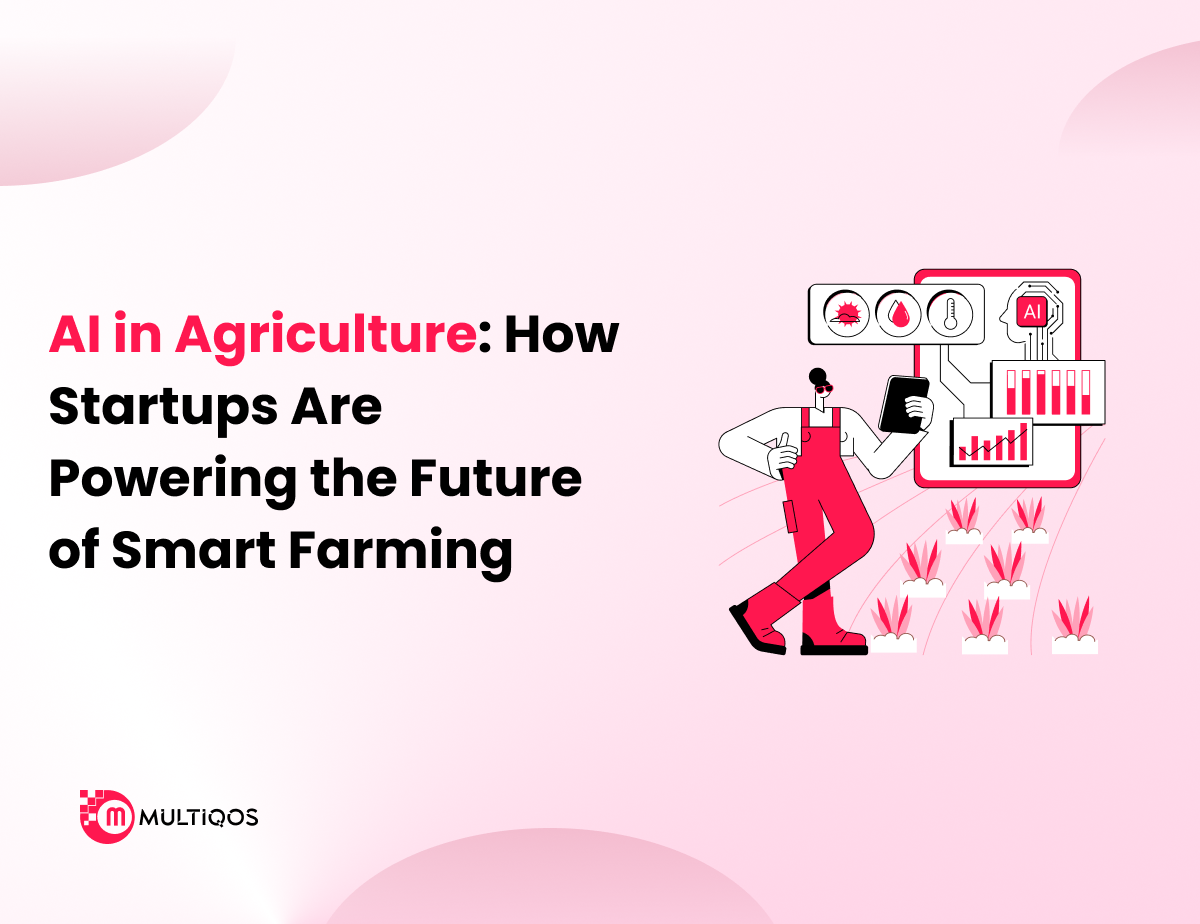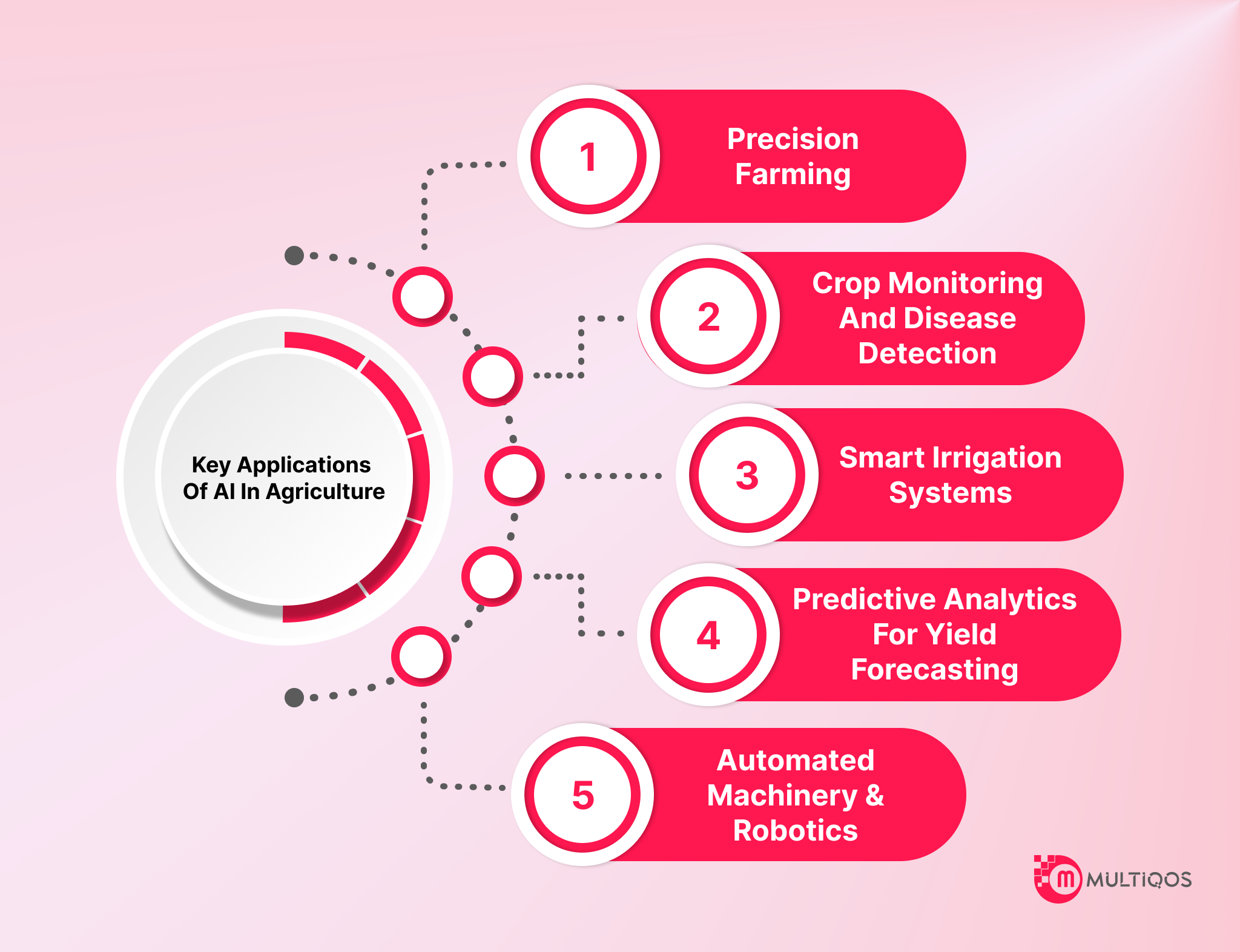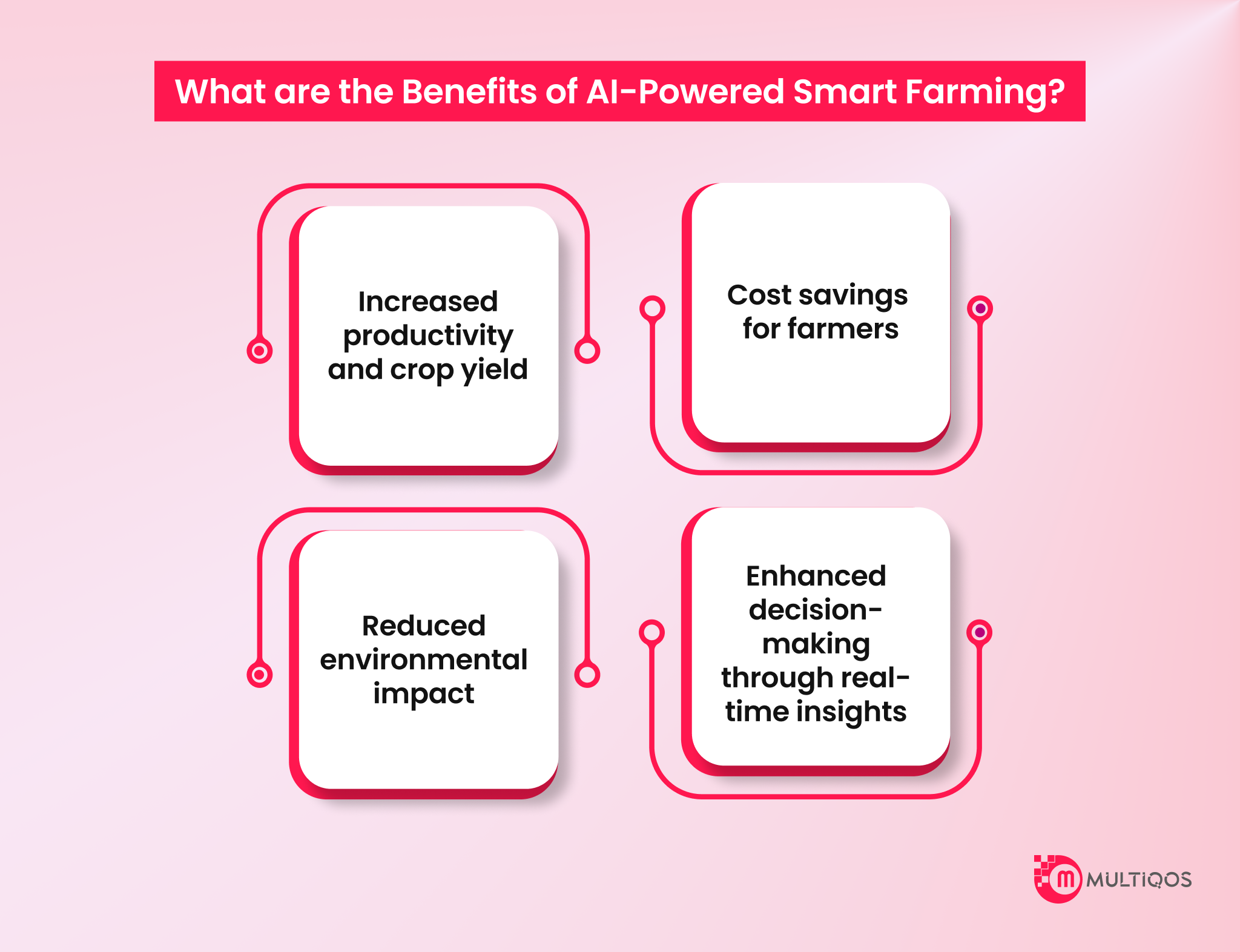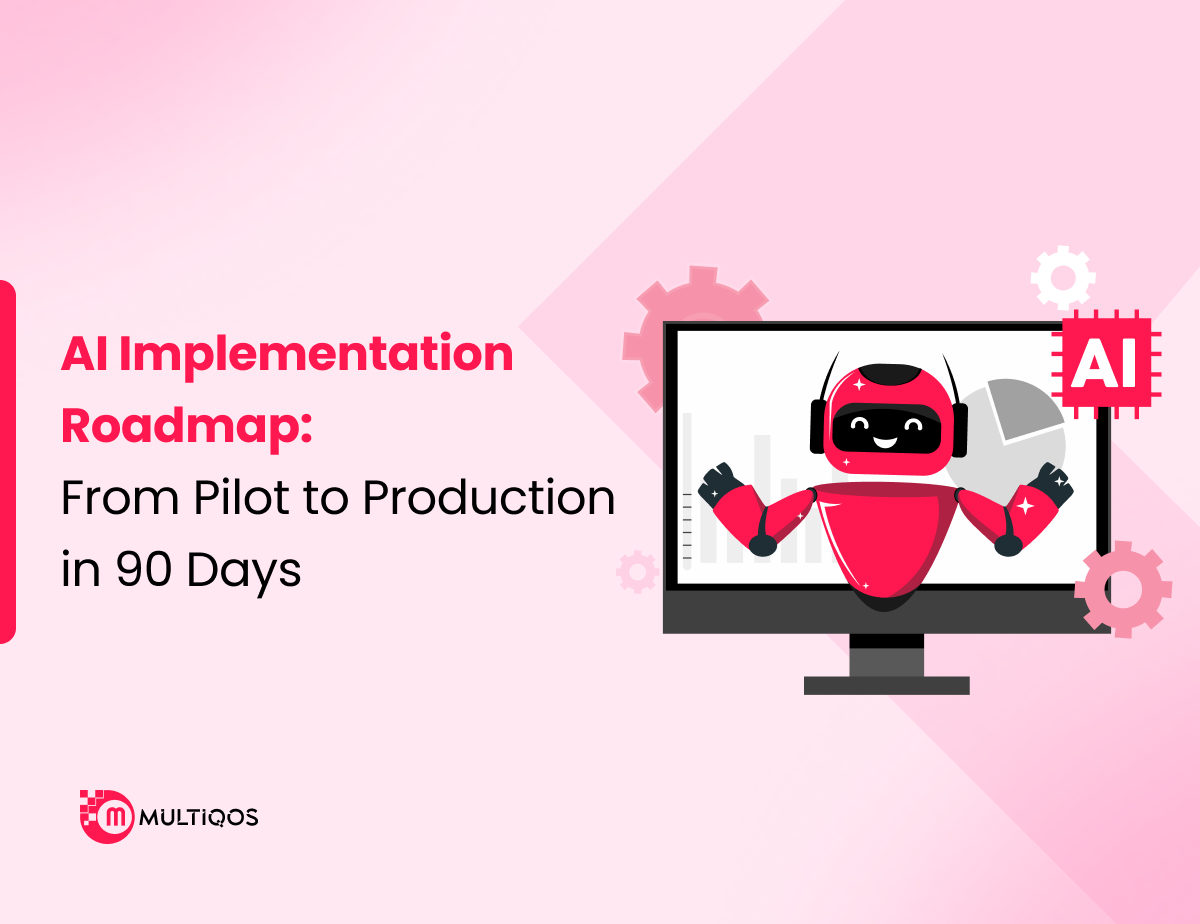AI in Agriculture: How Startups Are Powering the Future of Smart Farming

Summary:
AI in agriculture is transforming traditional farming by enabling smarter, more efficient practices. Startups are at the forefront of this revolution, using technologies like machine learning, computer vision, and IoT to tackle challenges such as crop monitoring, pest control, yield prediction, and resource management. These innovations help farmers make data-driven decisions, reduce waste, and increase productivity.
From drone-based field analysis to automated irrigation systems, AI-powered solutions are making farming more sustainable and profitable. As demand for food grows globally, the role of AI in agriculture becomes increasingly crucial in shaping the future of smart and precision farming.
Introduction
Farming is no longer about soil, sun, and sweat; It’s about sensors, software, and smart decisions. In agriculture, AI quickly revealed how food is grown, administered, and distributed. At the center of this change is the bold startup that leads to the limits of the possible.
By combining artificial intelligence with condition, species agricultural technology, these innovators address traditional agricultural problems, predict crop diseases, and automate watering with real-time figures. In this blog, we dive into how these startups benefit from the future of agriculture, one algorithm at a time.
Why does Agriculture need AI?
From climate change and a lack of labor in agriculture, the increase in global demand for food, agriculture faces outstanding challenges. Traditional agricultural methods, although effective in the past, are not enough to meet today’s requirements for efficiency, productivity and stability. This is where AI-driven enterprise solutions plays a transformative role in agriculture.
By taking advantage of data from sensors, satellites and drones, AI farmers make decisions on real -time decisions on crop health, watering, conception and insect control. These intelligent systems not only help promote returns, but also reduce waste and resource use, and lay the foundation for a more sustainable future. The rapid growth of Agro-Tech and AI in AgriTech is largely driven by companies investing in the solutions of smart agriculture startups and businesses.
Through AI integration services, agricultural businesses can use machine learning, computer vision, and future indication analysis to gain deep insights into all stages of the agricultural cycle. Whether automated for the labor-intensive tasks or predicting the weather pattern to plan crop, the AI revolution is how the fields go. In short, the future of agriculture depends on intelligent, computer-driven solutions, and AI is the origin of that development.
Key Applications of AI in Agriculture
AI brings revolution in the agricultural sector by enabling smart, data-driven agricultural practices. From improving crop health to adaptation of resource use, AI farms help increase efficiency, reduce costs, and promote productivity. Below are some of the most important applications to change modern agriculture:
1. Precision Farming
AI changes agriculture by enabling data -mechanized decisions that increase agricultural productivity in agriculture. With integration of machine learning and IoT units, farmers can monitor soil conditions, weather patterns and crop requirements in real time. This allows targeted interventions that are adapted to planting, fertilization, and soil analysis, reduces waste, and maximization of the dividend.
2. Crop Monitoring and Disease Detection
In agriculture, AI plays an important role in monitoring crops by identifying deficiencies, pest infections or nutrients in nutrients. Using drone images and advanced algorithms, AI analyzes visual data to detect system deviations. Machine learning models improve the accuracy of detection over time, enable time processing, and reduce crop losses.
3. Smart Irrigation Systems
With AI in agriculture, the smart irrigation system uses real -time data from the IoT sensor and weather forecast to provide the right amount of water at the right time. It not only saves water, but also promotes healthy crop growth. Soil analysis and future algorithms help to ensure that watering corresponds to specific crop and soil needs, and increases general efficiency.
4. Predictive Analytics for Yield Forecasting
AI in agriculture utilizes machine learning to analyze historical and relevant data for accurate returns. By combining entrances such as weather figures, soil quality, plant schedules, and monitoring of crops, the AI model can predict the starting level, which can help farmers make informed decisions on resource allocation, marketing plan, and risk management.
5. Automated Machinery & Robotics
The automation with AI in agriculture and the integration of robotics revolutionize the field work. From autonomous tractors to robot harvesting, smart machines can do repetitive tasks with accuracy. These AI-operated systems not only reduce labor costs but also ensure optimal performance and contribute to the operation of more durable and efficient agriculture.
What are the Benefits of AI-Powered Smart Farming?
AI-based smart agriculture explains how agriculture is controlled by combining data, automation and intelligent systems. By taking advantage of techniques such as machine learning, IoT and robotics, farmers can make better decisions, improve efficiency and use more sustainable practice. Here, AI gets some of the main benefits of integrating modern agriculture:
1. Increased productivity and crop yield
AI-controlled smart agricultural process uses advanced techniques such as machine learning, IoT and automation to adapt each step in the agricultural process. From planting to harvesting, AI ensures accurate time, resource allocation and crop control, leading to high productivity and better crop dividend. This allows farmers to improve more general agricultural efficiency.
2. Cost savings for farmers
AI in agriculture helps cut unnecessary expenses in agriculture by automating ordinary tasks and optimizing resource use. Smart systems reduce the need for manual labor, low input costs, fertilizers, and pesticides, and reduce crop losses through the initial detection of problems. These capabilities are translated into sufficient long-term savings, making agriculture more economically durable.
3. Reduced environmental impact
AI-controlled smart agricultural input supports environmentally friendly practice by promoting the exact use of input. Technologies such as smart water and soil analysis ensure that water and nutrients are used effectively, which reduces runoff and environmental decline. By reducing waste and preventing the use of chemicals, AI contributes to more sustainable agriculture with a small carbon footprint.
4. Enhanced decision-making through real-time insights
One of the most powerful benefits of AI in agriculture is the ability to provide action -rich, real -time insight to farmers. By collecting and analyzing data from sensors, drones and satellites, you can work with a well -known AI development company to provide a clear picture of crop health, soil conditions, weather patterns and insects. This insight enables sharp, date -driven decisions that improve the results and reduce the risk.
Conclusion
The rise of AI in agriculture is a significant turn, as we contact agriculture for data-handled intelligent systems from an intuition-based exercise. Startups are ahead of this change and provide innovative solutions that increase efficiency, reduce environmental impact, and ensure food security for the growing global population. As the agricultural landscape continues to develop, it is no longer an alternative to invest in smart technologies; this is a requirement.
If you want to create your own agricultural technology solution or integrate AI into the operation of farming, it is now time to hire AI developers who can make your vision come true and help shape the future of smart agriculture.
FAQs
AI is activated for accurate crops, automatic water monitoring, insect detection and predict dividends, which means that agriculture is more efficient, durable and data -driven.
AI helps develop innovative solutions that adapt to resources, improve crops and reduce costs, leading to competitive growth in the market.
Although starting costs may be higher, AI solutions become cheaper and scalable, reducing expenses to reduce cloud calculation and open source tools for a startup.
MultiQoS offers expert AI developers and helps startups to develop and distribute smart agricultural techniques effectively.
Main use cases in agro-tech include accurate cultivation, crop disease detection, automatic watering, yield prediction, and autonomous machines for planting and harvesting.
Get In Touch








